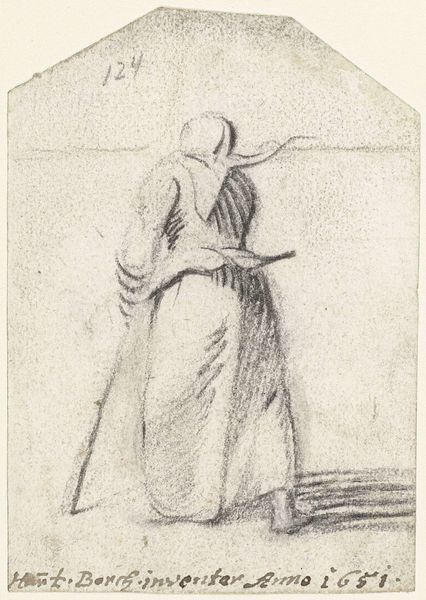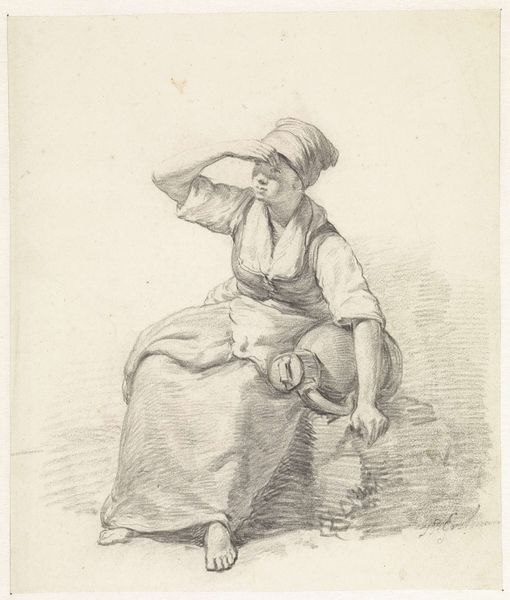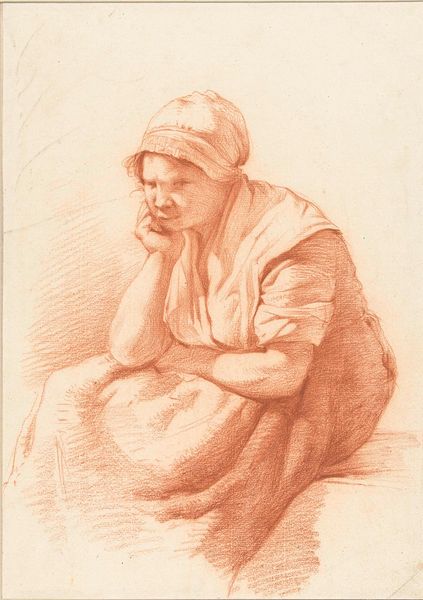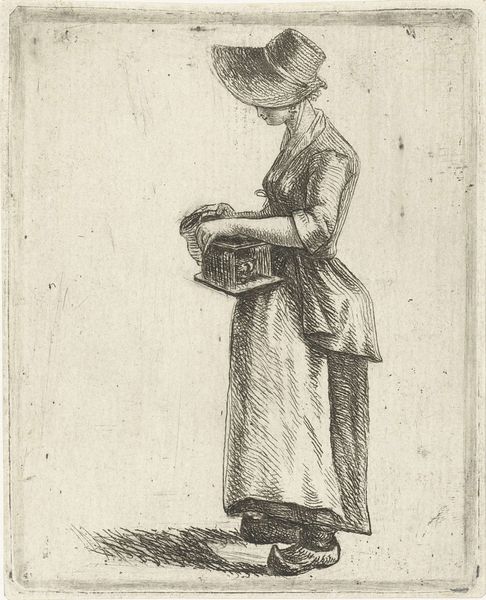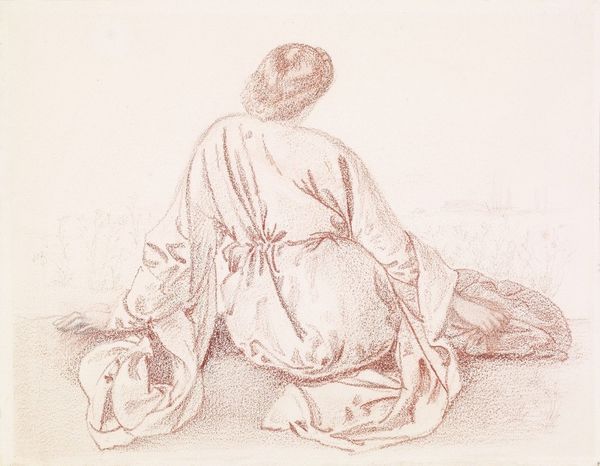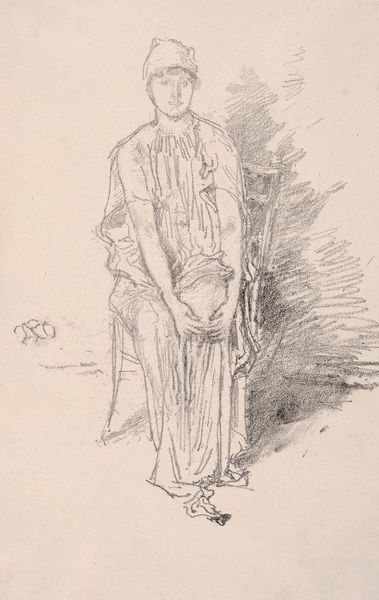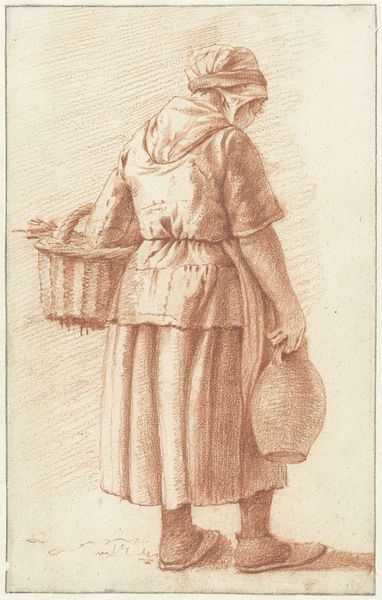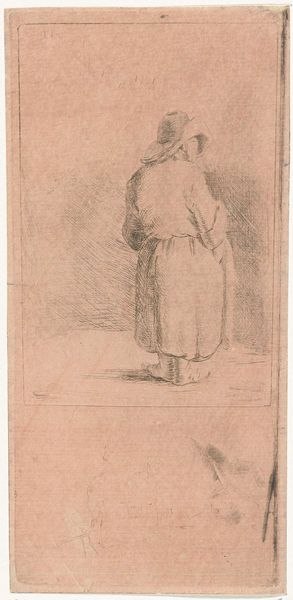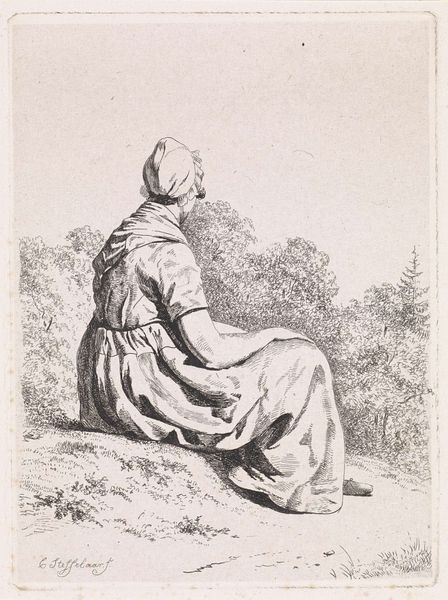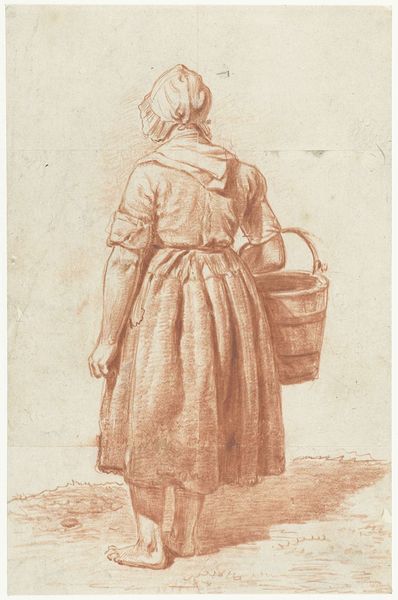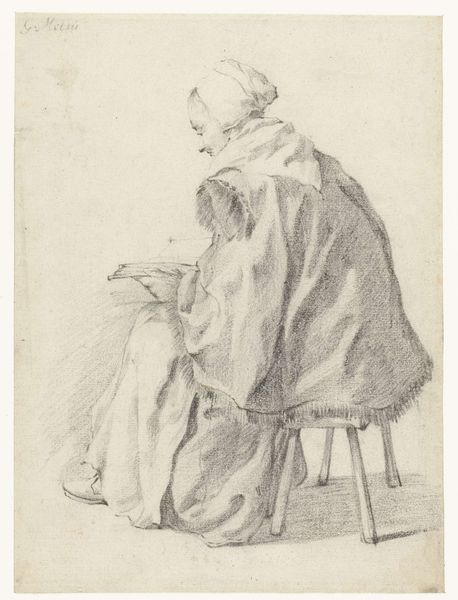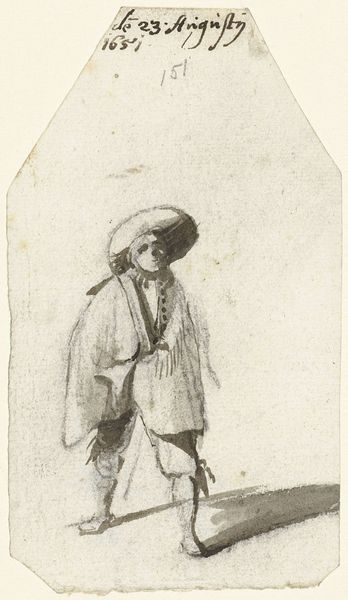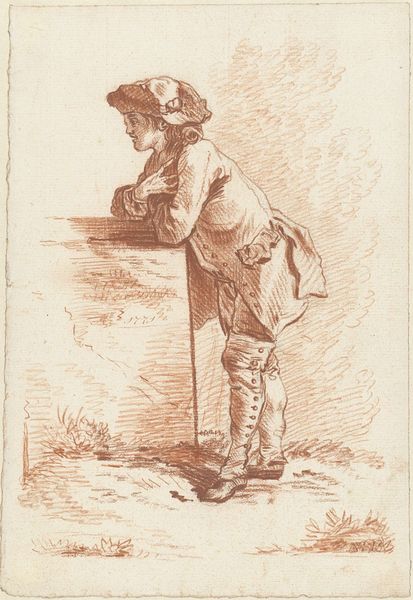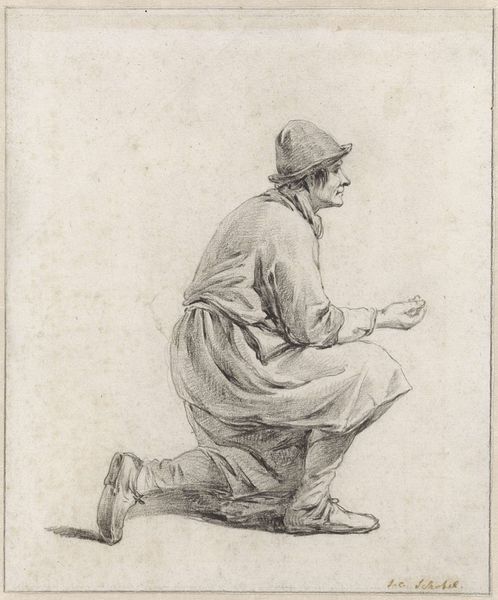
Zittende vissersvrouw met een mand aan de arm, op de rug gezien Possibly 1788 - 1841
0:00
0:00
drawing, pencil
#
portrait
#
pencil drawn
#
drawing
#
landscape
#
charcoal drawing
#
figuration
#
pencil drawing
#
pencil
Dimensions: height 220 mm, width 180 mm
Copyright: Rijks Museum: Open Domain
Curator: This delicate drawing, made with pencil, possibly by Abraham Johannes Ruytenschildt, offers us a glimpse into the lives of working women. It's titled, "Seated Fisherwoman with a Basket on Her Arm, Seen from the Back." Editor: There’s a certain melancholic beauty in its simplicity, isn't there? The monochromatic palette of earth tones, the soft lines… it almost feels like a fleeting memory captured on paper. Curator: Indeed. Ruytenschildt was active during a period of significant social upheaval. The rise of industrialization had profound effects on coastal communities and traditional occupations. He created at some point in time around the years 1788 and 1841. Editor: Looking closely, the texture is really interesting. The varying pressure of the pencil creates depth and shadow. See how the loose strokes define the ground and create a hazy backdrop? Curator: Absolutely. Ruytenschildt appears invested in showing the inherent nobility of labor, countering the idealized imagery of the leisured classes popular at the time. The pose—turned away from the viewer—seems to emphasize the woman's anonymity. Editor: Perhaps. Or, consider how the artist used the woman's turned back. The figure invites us, the viewer, to contemplate her thoughts, filling in the blanks. Her garments create a cascading series of shapes. Curator: A sensitive observation. While we can debate Ruytenschildt’s intent, this work speaks volumes about the economic realities facing women. The presence of the basket highlights the practical needs of fishing, as does her simple headscarf, warding against harsh sunlight. Editor: To me, that slightly downturned curve of her shoulder and the subtle droop of the cloth are all small parts. Together, these details make a coherent visual rhythm of understated dignity. Curator: Ultimately, Ruytenschildt delivers a quiet narrative of the social role played by working women. It prompts us to see these figures not just as anonymous workers but as individuals integral to society. Editor: I concur. We, too, become quiet observers of her solitude.
Comments
No comments
Be the first to comment and join the conversation on the ultimate creative platform.
